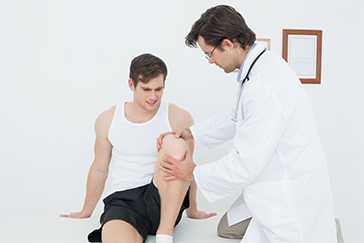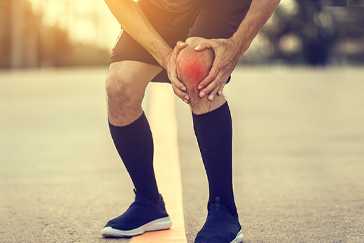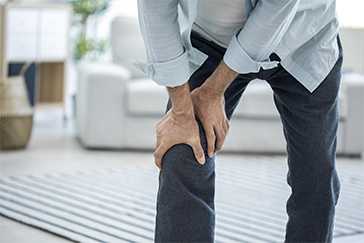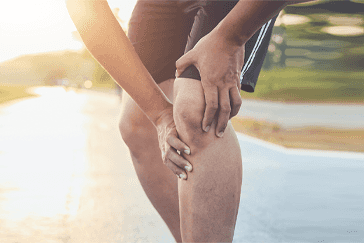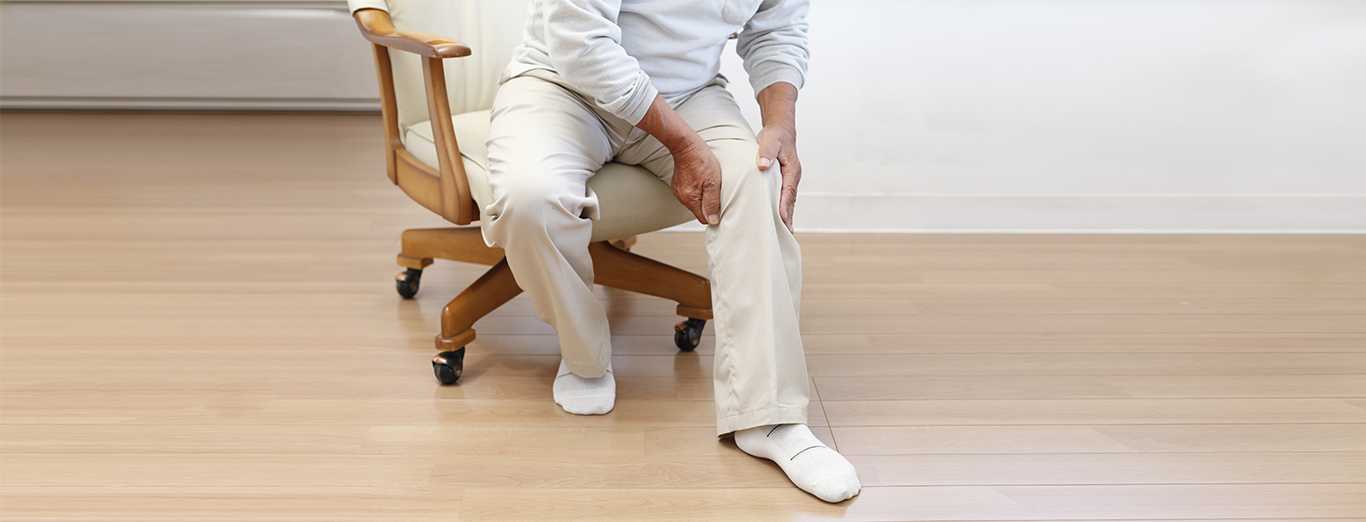
Expert Physiotherapy at Home
Certified physiotherapists visit you at home to provide focused, one-on-one care tailored to your needs. With no travel or waiting rooms, recovery happens in a setting that is comfortable, familiar, and built around your convenience.
Personalised Recovery Programmes
Every treatment plan is designed to suit your condition, goals, and pace. Our physiotherapists follow structured, evolving protocols to ensure consistent progress, with each session aligned to deliver meaningful results.
Trusted Physiotherapists. Real Results.
Our team comprises experienced, background-verified physiotherapists trusted by thousands of families. With a strong focus on safety, reliability, and clinical outcomes, we make recovery at home both effective and reassuring
Patient Testimonials
Portea Physiotherapists for Home Visits
Meet some of our experienced and dedicated healthcare professionals

Dr. Lokesh G
Physiotherapist
Specializations
Experienced in Neurological rehabilitation, Orthopaedic physiotherapy, and Paediatric care
Delivers structured, high-impact treatment plans across neuro, ortho, and paediatrics—ensuring safety, comfort, and measurable recovery at every stage.

Dr. Mohammed Sarwar
Physiotherapist
Specializations
Experienced in Neurological rehabilitation, Adult physiotherapy, and Paediatric care
Combines deep clinical expertise with a compassionate approach, supporting both adults and children through neuro and physical rehabilitation that promotes long-term independence and recovery.

Dr. Nelapati Divya
Physiotherapist
Specializations
Skilled in Orthopaedic rehabilitation, Manual therapy techniques, and Paediatric physiotherapy
Brings a personalised, hands-on approach to healing—combining structural expertise with paediatric sensitivity to restore movement, relieve pain, and improve everyday function.

Dr. Naveen V
Physiotherapist
Specializations
Trained in Pain management, Cardiac and Orthopaedic rehabilitation, Neurological care, and Neural tissue mobilisation
Brings clinical precision and empathy together—designing science-backed recovery protocols for pain relief, nerve mobilisation, and cardio-neuro-ortho rehabilitation across all age groups

Dr. Miloni Savla
Physiotherapist
Specializations
Holds an MPT in Orthopaedics with a focus on Musculoskeletal rehabilitation and strength recovery
Delivers focused, movement-oriented therapy grounded in orthopaedic science—helping patients rebuild strength, restore function, and return to daily life with confidence

10 common causes of knee pain:
Are you experiencing discomfort due to knee pain? Is your daily life affected due to the pain in your knees? If you agreed to this, then you need to know the cause of your knee pain to get the right line of treatment for obtaining relief. So, if you are flipping the pages of healthcare magazines, search no further! Read on to learn some of the most prominent causes of knee pain.
Knee is one of the biggest, crucial, and most complex joints found in your body. It joins your thigh bone to your shin bone. Knee joints are one of the most important ones as they efficiently holdup your body weight and absorb pressure as you walk, jump, or run comfortably. Daily wear and tear, sports injuries, certain health conditions, and many other factors can make you suffer from knee pain, which can pose a great hindrance in your active, healthy life. So, let’s have a look at some of the common causes of knee pain.
1. arthritis of the knee:
One of the most common causes of knee pain, discomfort, and disability resulting due to it is arthritis. Knee arthritis is a degenerative condition that needs a surgical procedure over a period of time. Osteoarthritis, rheumatoid arthritis, and post-traumatic arthritis are three most common types of arthritis that can make you suffer from knee pain, swelling, stiffness, and difficulty to bend your knee easily.
These Might be of Interest
2. tendonitis:
Tendonitis, which is also known as ‘jumper’s knee’, is another common cause of knee pain. Tendonitis is extreme irritation or inflammation of tendon, which is a thick structure that joins bone to your muscle. You suffer from this overuse injury due to sports activities, such as jumping while playing basketball, and other strain involving activities that make your tendons to swell. When your tendons of the knee joint suffer swelling or damage, you suffer from knee pain.
3. bone chips:
At times, when you suffer from a knee injury, some fragments may break off from your cartilage or bone. When these fragments of your bone or cartilage get stuck up in your knee joint, they may make it to freeze up and cause discomfort of knee pain. Bone chips may also cause swelling along with pain in knee.
4. housemaid’s knee:
Continuous kneeling for prolonged periods or repeated movements of your knee may make you suffer from Housemaid’s knee that makes you suffer from knee pain. This condition is also called as prepatellar bursitis, which results due to the inflammation of fluid-filled sac located in frontal area of knee joint. Also, you may suffer pain in knee due to the swelling behind your knee resulting in Baker’s cyst that usually results due to injuries or arthritic condition.
5. bleeding in knee joint:
Hemarthrosis, which is a condition causing bleeding in your joint, when occurs in your knee joint may make you suffer from extreme pain. It occurs due to common knee injury, such as hitting your knee. Bleeding in the knee joint tends to cause damage to the blood vessels around your knee ligaments. As a result, your knee may swell, become stiff, warm, and bruised. In severe cases, you may need get hospitalized to treat it and alleviate the discomfort.
6. iliotibial band syndrome (itbs):
ITBS is one of the most common overuse injuries that causes knee pain. Iliotibial band that runs from hip to your shin covering knee gets inflamed or tight making the movement of your knee quite painful. ITBS and knee pain due to it is common among the runners, and it makes running difficult.
7. osgood-schlatter disease:
Knee pain can also affects you due to Osgood-Schlatter disease. This disease particularly affects teenagers or growing adolescents who play sports. Osgood-Schlatter disease causes inflammation and swelling in the region beneath your knee where the tendon from your kneecap joins your tibia (shin bone), ultimately resulting in knee pain.
8. plica syndrome:
When your plica, which is an extension of your knee’s protective synovial capsule, gets inflamed, enlarged, or irritated due to overuse injury, then you are bound to suffer from knee pain. This condition is called synovial plica syndrome. You are more likely to suffer from anterior knee pain due to it. Also, you may suffer from crepitation, pseudo-looking, or catching due to plica syndrome.
9. partially dislocated kneecap:
Patellar (Kneecap) subluxation is a temporary physical condition occurring due to partial dislocation of your kneecap causing knee pain. Your kneecap slides out of its normal position and results in pain and swelling behind the kneecap. You may experience pain while straightening or bending your leg.
10. gout:
Gout can also cause knee pain. When uric acid accumulates in your knee due to gout, it makes you suffer from a shooting pain in your knee. Also, pseudogout can cause knee pain when the crystals of calcium pyrophosphate happen to build up in your knee joints.
Did you suffer from knee pain anytime? What was the cause of your knee pain? At Portea, we understand the challenges you face with knee pain. That’s why we’re here to help with specialized physiotherapy treatment, right in the comfort of your home. Our experienced professionals are dedicated to providing the care and support you need to overcome knee pain and enjoy a pain-free, active life once again. Let’s explore together the common causes of knee pain and find the path to relief and recovery.
about writer
Manjiri Kochrekar
Manjiri loves to explore various facts, ideas, and aspects of life and pen them down in her own words. Writing is her passion, which means she enjoys writing on a vast variety of subjects, and health care is just one among her several specialty areas. She works closely with the Portea Health care team to churn out informative health content.
faqs
How to reduce knee pain?
- Gentle Exercise: Strengthen surrounding muscles to support your knee.
- Cold Packs: Use for swelling, offering soothing relief.
- Warm Compresses: Apply to ease stiffness and comfort the knee.
- Elevate Your Leg: Promote circulation and reduce swelling.
- Rest: Allow your knee time to heal and recover.
- Pain Relievers: Over-the-counter options can provide temporary ease.
- Seek Professional Help: For persistent pain, a healthcare expert can offer personalized care and possibly physiotherapy.
Remember, your wellbeing matters!
When is knee pain serious?
Knee pain is serious when it’s persistent, severe, or accompanied by swelling, redness, tenderness, warmth, or deformity. Difficulty bearing weight, a popping noise, or inability to fully extend the knee are also concerning signs. In these cases, it’s crucial to seek medical attention for proper care and peace of mind.
What are disease related to knee pain?
Knee pain can be linked to diseases like osteoarthritis, rheumatoid arthritis, gout, and infections. Conditions like bursitis, tendinitis, and meniscus tears also contribute. Each brings its own challenges, impacting mobility and quality of life. Understanding these conditions is key to finding relief and maintaining your knee health.
What food is good for knee pain?
Foods rich in anti-inflammatory properties and nutrients are great for knee pain. Opt for omega-3 fatty acids found in fish, flaxseeds, and walnuts. Embrace fruits like berries and oranges, and leafy greens like spinach and kale. Ginger, turmeric, and green tea also offer soothing relief. Nourish your body to heal your knees!
How physiotherapy for knee pain help you?
Physiotherapy for knee pain can be a beacon of hope. It helps by strengthening knee muscles, increasing flexibility, and improving joint mobility. Through targeted exercises and therapies, it reduces pain, aids recovery, and enhances knee function. Physiotherapy empowers you to regain control over your movement and enjoy a more active, pain-free life.
Portea offers physiotherapy for knee pain at home. If you’re in need of physiotherapy or any nursing care right at your doorstep, just reach out to us. Immerse yourself in our world-class healthcare services, all from the comfort and safety of your home
Doctor Consultation
Nursing
Physiotherapy
Trained Attendant
Elder Care
Mother & Baby Care
Lab Tests
Medical Equipment
Speciality Pharma
Critical Care
